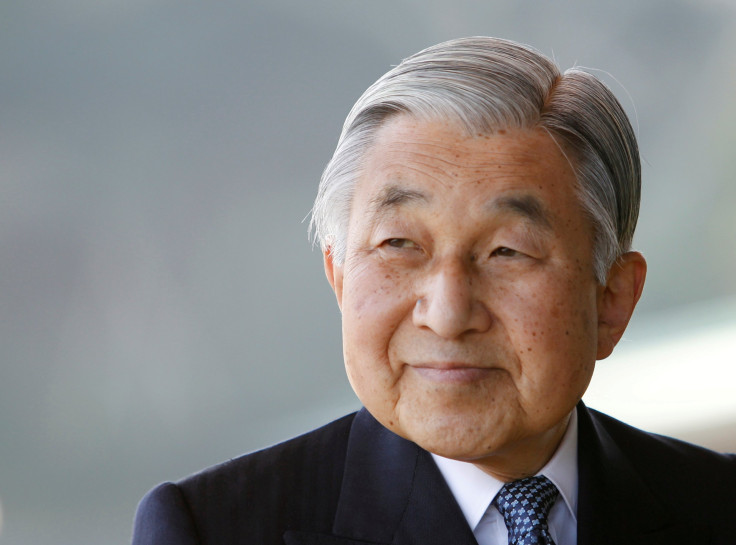Akihito Net Worth 2017: How Rich Is Japanese Emperor As Parliament Passed Historic Law For His Abdication

Japan's Chrysanthemum Throne will get a new emperor as the parliament passed a bill Friday allowing Emperor Akihito to abdicate. The 83-year-old will be the first emperor to be abdicated in Japan in 200 years.
The ailing Emperor Akihito is expected to retire in late 2018 after the government completes the process of abdication, and the throne will be passed to his eldest son Crown Prince Naruhito, the next in line to be the emperor. Emperor Kokaku, who gave up the throne in 1817, was the last Japanese emperor to abdicate.
"Once again, I want to thank all the parties for cooperation in consideration and adoption of a special law. The abdication of the incumbent emperor would take place for the first time in 200 years. That's why, the moment is connected with a long history, as well as with future," Japanese Prime Minister Shinzo Abe told reporters.
Akihito, who has had heart surgery and was treated for prostate cancer, expressed his desire to retire last year when he said he was beginning to feel "constraints" on his health, making it difficult for him to fulfill his official duties.
The enormously popular emperor has an estimated net worth of $40 million in 2017, according to reports. However, this figure reportedly does not include his personal assets.
The current succession rule in Japan allows only men from the paternal bloodline and prohibits women from ascending the 2,000-year-old Chrysanthemum Throne. The next in line to the throne, Naruhito, has only one daughter, Princess Aiko, bringing his younger brother, Crown Prince Akishino, second in line to the throne. The third in line is Akishino's son, Prince Hisahito, who was born in 2006.
There have been several debates in Japan on allowing women to reign. However, Abe's ultra-conservative government supports the current male-only succession.
“I am sure Abe has done the political calculation,” Kenneth J. Ruoff, a history professor and the director of the Center for Japanese Studies at Portland State University in Oregon said, according to the New York Times, “and decided it’s far better not to tick off the far right that feels intensely about this rather than cater to a largely passive majority that thinks that women should be allowed to sit on the throne.”
AFP graphic showing the family tree of the Japanese monarchy as parliament passes law clearing way for ageing Emperor Akihito to step down pic.twitter.com/LHb0GCJDPi
— AFP News Agency (@AFP) June 9, 2017
The issue of women leaving the family upon marriage was also highlighted last month with the announcement that the Emperor's oldest granddaughter will marry a commoner.
Princess Mako is expected to get married to a to a former classmate, Kei Komuro, 25, who is a law firm worker and graduate student and once starred in a tourism campaign as "Prince of the Sea.”
Akihito’s retirement and the forthcoming engagement of his granddaughter have reignited debate about the shortage of male heirs and a possible succession crisis.
© Copyright IBTimes 2025. All rights reserved.



















